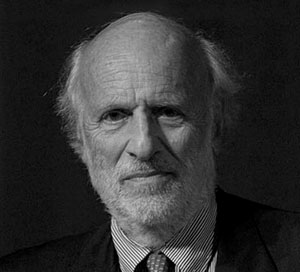WHAT
Welcome to the place where you can find Joint History Books
of 13 countries in Southeast Europe.
They span the period form the Ottoman Empire to 2008.
The books are a unique collection of historical sources from all the countries, compiled for students and history teachers. Their main goal is to show that every story has multiple points of view, supporting critical thinking and developing an understanding of how history is made. Nothing is taboo in the Joint History Books - they include everything from the political face of dictatorship and repression to the crises of the 70s' and 80s’, and the disintegration of Yugoslavia.
The books have triggered considerable international interest.
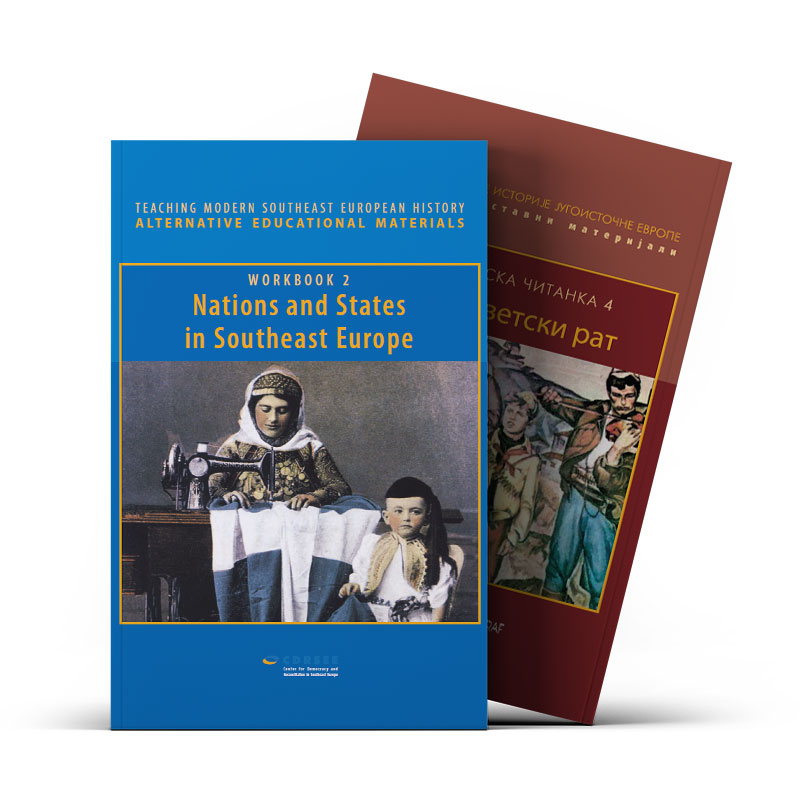
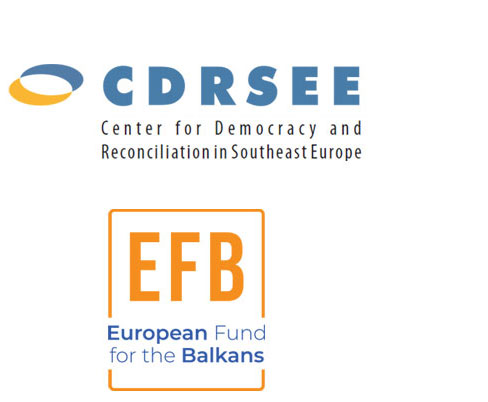
WHO
These books were the central programm of the Center for Democracy and Reconciliation in Southeast Europe (CDRSEE), a regional and impact-oriented NGO based in Thessaloniki that sought to foster democratic, pluralist, and peaceful societies in Southeast Europe. Despite of producing one of the most successful projects ever, in 2019 the CDRSEE has been forced to shut down due to the lack of funds.
On the initiative of the European Fund for the Balkans (EFB), through the support for the creation and maintenance of this website, these books are again available to the public. The EFB understands that these books are an important tool not only for history teaching, but also for opening a culture of dialogue and different ways of thinking.The Joint History Books can be a way out of a largely one-dimensional education system in the region of Southeast Europe and they have the potential to encourage exchange about different perspectives and experiences.
WHEN AND HOW
Hundreds of historians and teachers from the SEE had been engaged from 1998 to 2016 in producing these six workbooks – four of which have been published in 11 languages and span the period from the Ottoman Empire to the end of World War II. The second two books cover the Cold War and the Transition in Europe, including the wars of the 1990s, to 2008, and have been published in four languages.
The CDRSEE's History Education Committee, made up of contributors from every country of the region, identified sources and content for the production of the books, ensuring that multiple perspectives are portrayed. More than 100 historians and 300 teachers had been involved in compiling these books.
"These workbooks do not aim to replace history textbooks currently used in classrooms nor do they aspire to provide a cohesive narrative of the history of Southeast Europe from the 14th century to date. They do, however, have cognitive and moral aims, and they suggest methods and tools for the teaching of history. They propose to rewrite history through a lesson of method rather than content."
Christina Koulouri
WHERE
These books are meant to be used and are produced in collaboration with historians and teachers from all the corners of SEE: Albania, Bosnia and Herzegovina, Bulgaria, Croatia, Cyprus, Greece, Kosovo, Montenegro, Romania, North Macedonia, Slovenia, Serbia and Turkey.
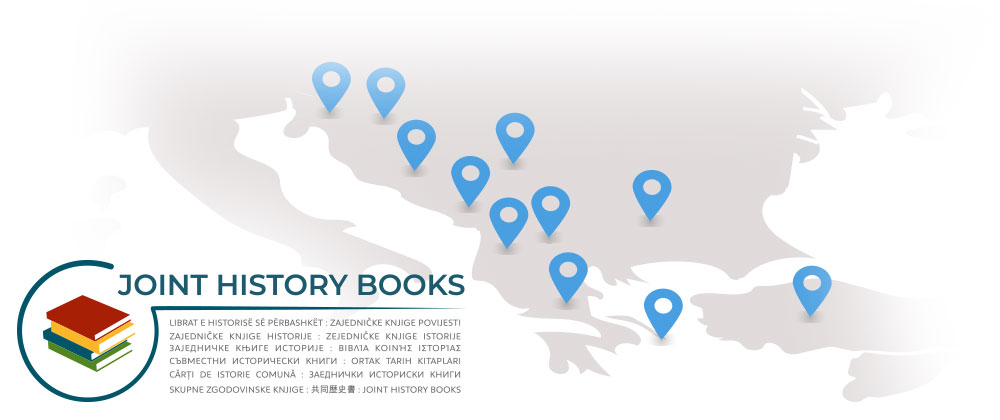
JOINT HISTORY BOOKS
In numbers
Teachers
participated
Students
informed
Languages
translated
Downloads
in 2017
METHODOLOGY
The authors had been led by the idea of collecting and presenting historical sources and the variety of interpretations and viewpoints projected by the sources themselves, rather than a historiographical work. They, in no way, suggest the objectivity or the authenticity of the sources. The aim is simply to demonstrate. These books, in other words, apply the comparative method and the multiperspective approach.
AUTHORS
An outstanding contribution to producing these books have been made by Costa Carras, CDRSEE Rapporteur to the Board for the Joint History Project and Prof. Christina Koulouri, General Coordinator and Series Editor. For tireless efforts and dedication, the gratitude goes to the Editors: Prof. Dubravka Stojanovic, Prof. Halil Berktay, Prof. Bogdan Murgescu, Prof. Mirela Luminita Murgescu, Prof. Valery Kolev, Mr. Kresimir Erdelja Prof. Neven Budak, Prof. Alexei Kalionski, Prof.Niyazi Kızılyürek, Prof. Božo Repe, Dragutin Popovic. Crucial for the success of the project were also tireless efforts by chairs and members of the Board of Directors - Matthew Nimetz, Richard Schifter, Erhard Busek, Hannes Swoboda, Nikos Efthymiadis, Rigas Tzelepoglou, Saso Ordanoski, Dusan Reljic, Selcuk Erez, as well as two Executive Directors at the time, Nenad Šebek and Zvezdana Kovač.
Making an important contribution to the soundness and balance, the books had been reviewed and commented by six Readers: Prof. Robert Stradling, Prof. Maria Todorova, Prof. Peter Vodopivec, Ivan Vejvoda, Prof. Andreas Demetriou and Prof. Florian Bieber.
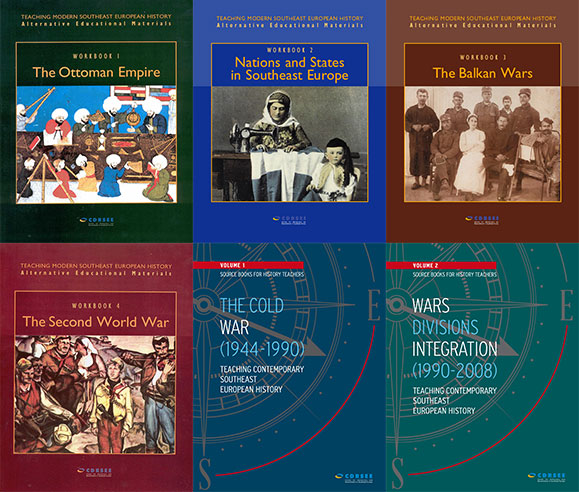
DOWNLOADS
Joint History Books in English
The Second World War
Workbook 4.
The Cold War (1944-1990)
Volume 1.
Wars, Divisions, Integration (1990-2008)
Volume 2.
in memoriam
Costa Carras, the founder, and the creator of the initial idea of the Joint History Books passed away just a few weeks before this website was launched.
Mr. Carras' knowledge, tireless efforts, enthusiasm, and support were crucial for these books to see the light of day, starting, thus, a new era of re-examining history, re-examining our own baggage of prejudice, the lack of empathy and understanding. Mr. Carras embodied so many virtues; he combined huge knowledge with great passion, taking on many challenges to strive for democracy and peaceful coexistence among nations.
Rest in Peace, Mr. Carras. You have left to the young generations a most splendid tool to be, above all, good people.
